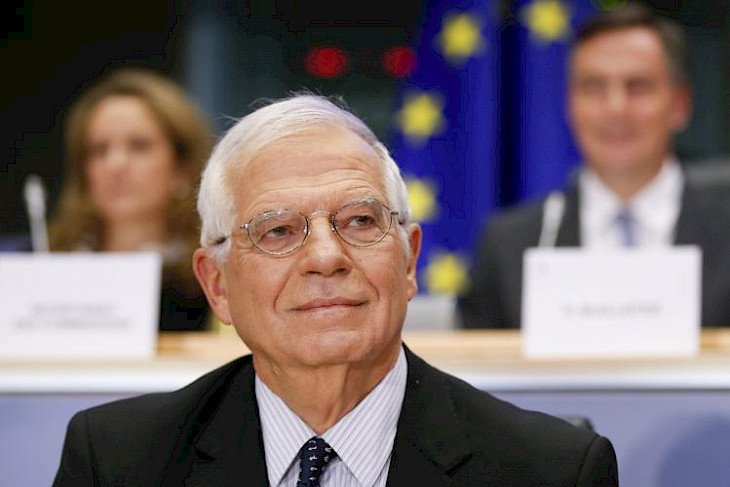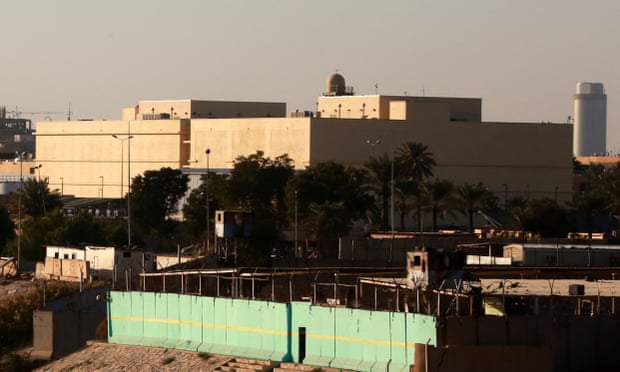
Kabar (27 January 2020)
Josep Borrell, High Representative of the European Union for Foreign Affairs and Security Policy, and Vice-President of the European Commission released a statement on the eve of the conference entitled “Green Central Asia”.
The following is the full text of his statement:
On 28 January 2020, friends from Central Asia, Afghanistan and the European Union will gather in Berlin for a conference organised by the German Foreign Ministry, entitled “Green Central Asia”. I was glad to accept the invitation and join Foreign Ministers from the region, for two main reasons:
First, to underline how urgent the challenge of tackling climate change is and how much we need to mobilise everyone to address it. The science is clear: we are facing a true climate crisis. Climate change is one of the biggest geopolitical challenges we face. It poses problems of redistribution, inside the EU and beyond, and is a driver of instability and migratory pressures. It creates problems of social justice, raises tensions and poses a threat to human rights. Tackling these multi-faceted threats cannot be left only to climate specialists. It must be at the centre of our foreign policy.
Europe is ready to lead the global fight against climate change. In December 2019 we adopted the “EU Green Deal”, which commits the EU to becoming carbon neutral by 2050. But the EU is only responsible for 9% of global emissions, so we need others to join us
The second reason was that the conference was a good opportunity to reconfirm the EU’s commitment to strengthen cooperation with Central Asia. In fact, relations have entered a new phase. Last year EU Foreign Ministers adopted a new Strategy on Central Asia with the specific aim to step up our engagement with the region so that it becomes a more resilient, prosperous, and interconnected space. We see huge potential for greater regional cooperation in Central Asia, a view which the leaders of Central Asia share as they themselves stated at their summit last November in Tashkent
Climate change is a top priority for our partnership, as Central Asia is particularly affected. Over the past three decades, average annual temperatures in the region have already risen by 0.5 degrees Celsius and droughts and water scarcity have disrupted entire ecosystems. The disappearance of the Aral Sea is a spectacular illustration of the negative consequences of climate change. This is not “just”an environmental problem:it is a catastrophe for entire communities who live on its former shores
No comments yet.
- SALVINI DOWN, BUT NOT OUT IN ITALY REGIONAL POLL Europe - EU 27.01.2020
-
 US EMBASSY IN IRAQ HIT BY ROCKET ATTACK, WOUNDING AT LEAST ONE
Iraq
27.01.2020
US EMBASSY IN IRAQ HIT BY ROCKET ATTACK, WOUNDING AT LEAST ONE
Iraq
27.01.2020
-
 MARTYR DIPLOMATS
The Caucasus and Turkish-Armenian Relations
27.01.2020
MARTYR DIPLOMATS
The Caucasus and Turkish-Armenian Relations
27.01.2020
- A NET-ZERO EMISSIONS FUTURE TO GUIDE EUROPE THROUGH TURBULENT ECONOMIC TIMES Europe - EU 27.01.2020
- IRAQ: WHY THE DELAY IN PICKING A NEW PRIME MINISTER? Iraq 27.01.2020
-
25.01.2016
THE ARMENIAN QUESTION - BASIC KNOWLEDGE AND DOCUMENTATION -
12.06.2024
THE TRUTH WILL OUT -
27.03.2023
RADİKAL ERMENİ UNSURLARCA GERÇEKLEŞTİRİLEN MEZALİMLER VE VANDALİZM -
17.03.2023
PATRIOTISM PERVERTED -
23.02.2023
MEN ARE LIKE THAT -
03.02.2023
BAKÜ-TİFLİS-CEYHAN BORU HATTININ YAŞANAN TARİHİ -
16.12.2022
INTERNATIONAL SCHOLARS ON THE EVENTS OF 1915 -
07.12.2022
FAKE PHOTOS AND THE ARMENIAN PROPAGANDA -
07.12.2022
ERMENİ PROPAGANDASI VE SAHTE RESİMLER -
01.01.2022
A Letter From Japan - Strategically Mum: The Silence of the Armenians -
01.01.2022
Japonya'dan Bir Mektup - Stratejik Suskunluk: Ermenilerin Sessizliği -
03.06.2020
Anastas Mikoyan: Confessions of an Armenian Bolshevik -
08.04.2020
Sovyet Sonrası Ukrayna’da Devlet, Toplum ve Siyaset - Değişen Dinamikler, Dönüşen Kimlikler -
12.06.2018
Ermeni Sorunuyla İlgili İngiliz Belgeleri (1912-1923) - British Documents on Armenian Question (1912-1923) -
02.12.2016
Turkish-Russian Academics: A Historical Study on the Caucasus -
01.07.2016
Gürcistan'daki Müslüman Topluluklar: Azınlık Hakları, Kimlik, Siyaset -
10.03.2016
Armenian Diaspora: Diaspora, State and the Imagination of the Republic of Armenia -
24.01.2016
ERMENİ SORUNU - TEMEL BİLGİ VE BELGELER (2. BASKI)
-
AVİM Conference Hall 24.01.2023
CONFERENCE TITLED “HUNGARY’S PERSPECTIVES ON THE TURKIC WORLD"









